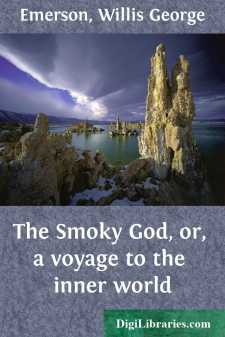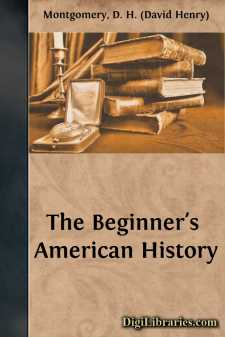History
- Africa 30
- Americas (North Central South West Indies) 50
- Ancient 68
- Asia 58
- Australia & New Zealand 8
- Canada 41
- Caribbean & West Indies 1
- Civilization 20
- Eastern Europe 12
- Europe 310
- Expeditions & Discoveries 60
- General 77
- Historical Geography 1
- Jewish 9
- Latin America 3
- Medieval 8
- Middle East 13
- Military 248
- Revolutionary 8
- Study & Teaching 5
- United States 353
- Western Europe 56
- World 13
History Books
Sort by:
PART ONE. AUTHOR'S FOREWORD I FEAR the seemingly incredible story which I am about to relate will be regarded as the result of a distorted intellect superinduced, possibly, by the glamour of unveiling a marvelous mystery, rather than a truthful record of the unparalleled experiences related by one Olaf Jansen, whose eloquent madness so appealed to my imagination that all thought of an analytical...
more...
CHRISTOPHER COLUMBUS CB. 1. Birth and boyhood of Columbus.—Christopher Columbus,[2] the discoverer of America, was born at Genoa,[3] a seaport of Italy, more than four hundred and fifty years ago. His father was a wool-comber.[4] Christopher did not care to learn that trade, but wanted to become a sailor. Seeing the boy's strong liking for the sea, his father sent him to a school where he could...
more...
by:
Francis Parkman
INTRODUCTION. The springs of American civilization, unlike those of the elder world, lie revealed in the clear light of History. In appearance they are feeble; in reality, copious and full of force. Acting at the sources of life, instruments otherwise weak become mighty for good and evil, and men, lost elsewhere in the crowd, stand forth as agents of Destiny. In their toils, their sufferings, their...
more...
by:
Edward Farr
WAR WITH SPAIN. The year had not closed before the ministers found that a rupture with Spain was inevitable. The first intimation of it was detected in the menacing conduct of the court of Versailles; and Lord Bristol, the English ambassador at Madrid, was instructed to demand the real intentions of Charles III., and the real purport of the family compact. General Wall, the Spanish minister replied...
more...
by:
Hugh Miller
CHAPTER I."Ye gentlemen of England,Who live at home at ease,Oh, little do ye think uponThe dangers of the seas."—Old Song.Rather more than eighty years ago, a stout little boy, in his sixth or seventh year, was despatched from an old-fashioned farm-house in the upper part of the parish of Cromarty, to drown a litter of puppies in an adjacent pond. The commission seemed to be not in the least...
more...
by:
Anthony Hamilton
The accounts prefixed to the different editions of his works, down to the year 1805, are very imperfect; in that year a new, and, in general, far better edition than any of the preceding ones, was published in Paris, to which a sketch of his life was also added; but it contains rather just criticisms on his works, than any very novel or satisfactory anecdote concerning himself. It is not pretended here...
more...
CHAPTER I. Original Compromises between the North and the South embodied in the Constitution.—Early Dissatisfaction with National Boundaries. —Acquisition of Louisiana from France by President Jefferson.— Bonaparte's Action and Motive in ceding Louisiana.—State of Louisiana admitted to the Union against Opposition in the North.— Agitation of the Slavery Question in Connection with the...
more...
PREFACE In the month of August, 1841, I attended an anti-slavery convention in Nantucket, at which it was my happiness to become acquainted with FREDERICK DOUGLASS, the writer of the following Narrative. He was a stranger to nearly every member of that body; but, having recently made his escape from the southern prison-house of bondage, and feeling his curiosity excited to ascertain the principles and...
more...
INAUGURAL LECTURE ON THE STUDY OF HISTORY Delivered at Cambridge, June 1895 FELLOW STUDENTS—I look back today to a time before the middle of the century, when I was reading at Edinburgh and fervently wishing to come to this University. At three colleges I applied for admission, and, as things then were, I was refused by all. Here, from the first, I vainly fixed my hopes, and here, in a happier hour,...
more...
CHAPTER I. Abraham Lincoln expired at twenty-two minutes after seven o'clock on the morning of April 15, 1865. Three hours later, in the presence of all the members of the Cabinet except Mr. Seward who lay wounded and bleeding in his own home, the oath of office, as President of the United States, was administered to Andrew Johnson by Chief Justice Chase. The simple but impressive ceremony was...
more...











